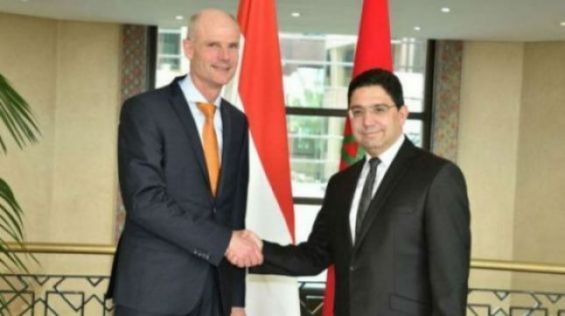The international coronavirus health crisis has triggered an unprecedented blockage for several nationals. Morocco has been closing its borders since March 15, preventing 22,000 Moroccans from entering the Kingdom and thousands others from leaving it.
While repatriation plans remain tricky during these difficult days, no one understood Morocco's sudden decision that still prevents the return of Moroccans living abroad to the countries where they reside through special flights chartered by these nations.
The Ministry of Foreign Affairs has remained silent when it comes to the reasons behind this decision at a time when several French-Moroccans had been able to return to France through flights chartered by the French government. Meanwhile, the open letters, testimonies and tragedies of several Moroccans living abroad remain unanswered.
Communication problems and a behind-the-scenes crisis
An authorized source within the Ministry of Foreign Affairs recognized that the situation was triggered by a communication mistake. Speaking to Yabiladi, the same source explained that Morocco has never prevented Moroccans living abroad or dual nationals from returning to their countries of residence.
This is evidenced by the numerous flights chartered by France, Canada, and several Nordic countries, that repatriated Moroccan nationals as well. In total, Morocco has authorized more than 500 special flights which have repatriated more than 80,000 stranded people to their countries of residence.
Fluid processes were put in place in the beginning to cater for the disparate situations, depending on the country, but old diplomatic tensions have re-emerged, particularly with the Netherlands. While 25 special flights made it possible to repatriate the Dutch nationals and Moroccans living in the Netherlands without distinction, requesting a special flight for dual nationals stranded in the Rif angered Rabat.
«The Netherlands has showed bad faith by presenting this request as a way of defending dual nationals even in their country of origin», the same source argued. «They tried to bring back an old political debate by taking advantage of this health crisis. It is not acceptable for Morocco», the same source added.
The shadow of Hirak
Indeed, recurring diplomatic tensions have emerged between Rabat and the Hague since the day the Dutch Foreign Minister announced his support for the Hirak movement. Stef Blok also advised Moroccans living in his country to «be careful» when they visit Morocco.
In 2018, Morocco had twice summoned the Dutch ambassador to Rabat. In 2019, relations had softened somewhat, although the Kingdom refused to receive Ankie Broekers-Knol, Secretary of State for Justice and Security, last November.
Relations between the two countries are also wrangling over the Said Chaou case, with Rabat demanding the extradition of the former politician.
Morocco's decision has led to a new repatriation policy, authorizing flights based on bilateral diplomatic ties. Thus, a flight to the United Kingdom with several Moroccans on board could be set up by London. The situation with Belgium is also easing : «Belgium has agreed not to make a distinction between nationals, dual nationals, and Moroccans», said the authorized source.
Can the extremely difficult situation of these thousands of Moroccans be the issue of a diplomatic crisis that reemerges in the middle of a pandemic ? «It is manipulation to put Morocco before the fait accompli and thus interfere in the future in the relationship between the Kingdom and its citizens on the Moroccan soil», replied the diplomatic source. A matter of sovereignty that Morocco is not planning to let go easily.





 chargement...
chargement...











